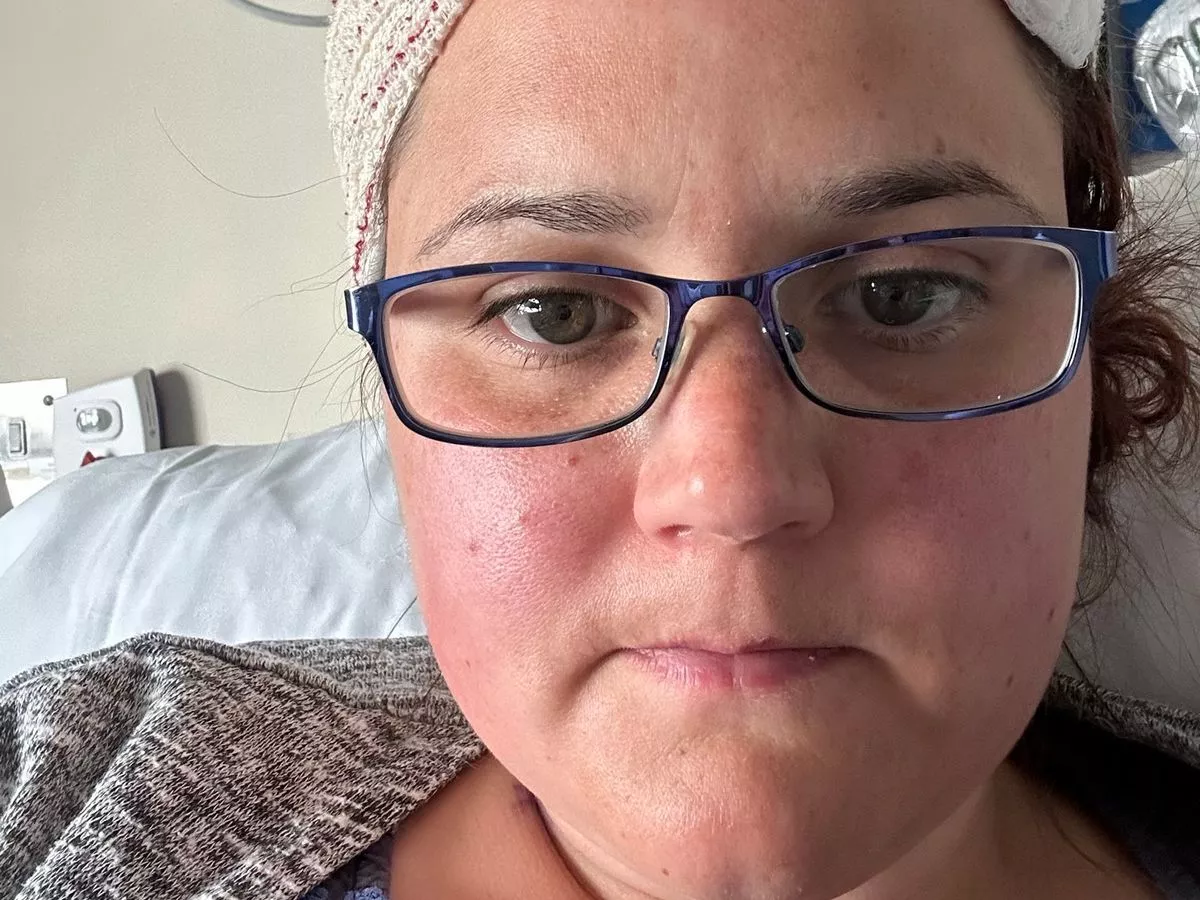By Steven Smith
A new mum was diagnosed with a brain tumour after dismissing her fatigue and headaches as ‘baby brain’. Amy Dyer, 37, believed her extreme tiredness and low concentration were simply part of life as a parent, until a terrifying seizure in her sleep led to a devastating diagnosis. A biopsy later confirmed she had a low-grade astrocytoma and she underwent an awake craniotomy in June 2023. The surgery was a success and further testing revealed the tumour was a more aggressive grade 3 astrocytoma. Following the operation, Amy underwent physiotherapy, occupational therapy, radiotherapy and oral chemotherapy. To her relief, in June 2025, she received her first clear scan. Amy, a computer science teacher from Cullompton, Devon, said: “I’d had our little boy and was juggling life as a mum and teaching. I thought I had what everyone calls ‘baby brain’ tiredness, low concentration, feeling foggy. “It all just felt like part of motherhood, especially after having a baby. I didn’t go to the doctors because I genuinely thought it was just postnatal exhaustion, maybe low iron or fatigue. Nothing unusual.” But in December 2022, after experiencing “terrible” headaches, low concentration and eventually a seizure in her sleep, Amy was rushed to the Royal Devon and Exeter Hospital. “I started having headaches, terrible ones that would wake me up in the middle of the night,” she said. “Looking back, I realise my concentration levels were much lower than they should have been. “I was startled to wake up to my sister, Chloe and husband, Will, staring at me in horror, I thought they were joking, how could I have had a seizure if I was asleep?” At the hospital she suffered a second seizure and a CT scan revealed a space-occupying lesion in her brain. She was prescribed anti-seizure medication and given an MRI scan. Amy said: “One minute I was in bed, the next, I was in hospital, facing brain scans and big decisions. It was dreadful.” After further tests, Amy was referred to University Hospital Plymouth for a biopsy and in May 2023 was diagnosed with a low-grade astrocytoma, a type of brain tumour. Faced with the option to wait and monitor the tumour or have surgery, Amy chose to undergo an awake craniotomy in June 2023. Amy said: “I heard the words tumour and my world changed. I didn’t want to wait to see if the tumour would develop, so I chose surgery. “The risks scared me: seizures, complications, even death. But I knew I couldn’t leave it and risk it becoming inoperable.” On June 8, 2023, Amy underwent the procedure at University Hospital Plymouth. Surgeons initially kept her awake to monitor brain function, asking her to move her left hand, before placing her under general anaesthetic to complete the operation. The surgery was considered a success and Amy spent five days in hospital. “Thankfully, I didn’t lose mobility on my left side,” she said. “They weren’t able to tell me the percentage of the tumour they removed, but I’m happy they felt the operation was a success.” Further testing revealed the tumour was a more aggressive grade 3 astrocytoma. “They sent it away to be tested and found out that it was in fact a grade 3 astrocytoma,” she said. “Doctors asked to keep some of the tumour to aid research which I agreed.” Since then, she has undergone physiotherapy, occupational therapy, 33 sessions of radiotherapy and oral chemotherapy. Amy now has routine scans every four months. In June 2025, she received a clear scan, three years after her first symptoms. Amy described this as “great news”. She said: “I’ve learned to take life slower. Before, I was on a hamster wheel. Now I value people, time and memories more than possessions. I haven’t had a seizure since the first two in 2022 and I received a clear scan for June 2025, which is great news.” Amy is now raising funds for Brain Tumour Research by participating in the 88 Squats a Day in July Challenge to raise money for a cure. Katrina Jones, head of community fundraising at Brain Tumour Research, said: “Amy’s strength and determination in sharing her story is truly inspiring, by opening up about her experience, she’s not only raising vital awareness of the signs and symptoms of brain tumours but also helping to highlight the urgent need for more funding into research. We’re incredibly grateful for her support and proud to have her as part of our fundraising community.”
